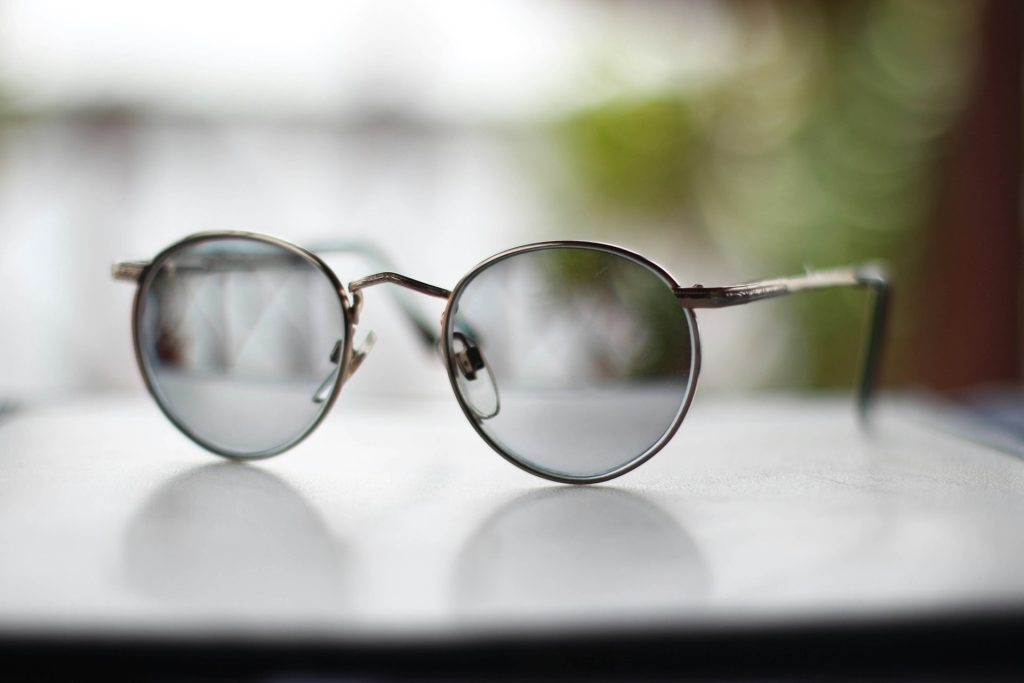Choosing between contacts and glasses can significantly affect your vision experience. Ultimately, the best choice depends on your lifestyle and vision needs, but many find that glasses provide greater comfort and ease of use, while contacts offer a more natural field of vision.
Contacts can enhance peripheral vision and eliminate the bulk of frames, making them ideal for active lifestyles or special occasions. On the other hand, glasses are easy to wear and require less maintenance, appealing to those who prefer a straightforward option without the added care of cleaning and changing lenses.
As you navigate your vision correction options, it’s essential to consider what aligns best with your daily routine. Whichever path you choose, remember that The Modern Medicare Agency is here to support your health needs, including any Medicare insurance questions you may have, with licensed agents ready to assist you.
Understanding Vision Correction
When it comes to vision correction, understanding the options available is essential. Eyewear has evolved significantly over the years, offering different solutions that cater to individual needs and preferences. Here are the key aspects of glasses and contact lenses in detail.
Evolution of Eyewear
Eyewear has been around for centuries, with the first known spectacles appearing in Italy in the late 13th century. Initially crafted with simple frames and lenses, glasses have since evolved into highly functional devices tailored to the user’s vision needs.
Advancements in lens technology include high-index lenses, which are thinner and lighter, making them comfortable for everyday use. Additionally, various coatings, like anti-reflective and blue light filtering, improve visual comfort and protection. Today, glasses come in various styles, from prescription glasses to fashion-forward designs, ensuring there is something for everyone.
Basics of Contacts and Glasses
Contacts and glasses serve the primary purpose of correcting vision, but they do so in different ways. Glasses sit on the nose and can be easily removed, making them convenient. They do have limitations, such as potential distortion at the lens edges and a peripheral vision impact.
In contrast, contact lenses sit directly on the eye, allowing for a broader field of vision and often less distortion. Your contact lens prescription differs from your glasses prescription, as it considers the lens size and shape against your eye surface. Proper fitting and care are crucial for comfort and eye health.
Both options have their unique benefits. Understanding these elements helps you make an informed decision regarding your vision correction needs.
Comparing Comfort and Convenience
When choosing between contacts and glasses, comfort and convenience play crucial roles in your decision. Each option has distinct benefits that cater to different lifestyles and personal preferences.
Comfort of Wear
Comfort varies significantly between contacts and glasses. Daily disposables and extended wear contacts offer flexible options for users who prefer the feel of lenses. Soft lenses are generally more comfortable for longer wear compared to hard lenses, which can cause discomfort initially.
If you face irritation from wearing glasses, contacts might be preferable since they eliminate pressure on your nose and ears. Prescription sunglasses also add comfort during sunny days, but they can’t match the unobtrusive feel of contacts. For many, silicone hydrogel lenses may provide improved breathability and moisture retention, enhancing overall comfort during extended wear.
Convenience Factors
Convenience is another important aspect in this comparison. Contacts provide a more natural field of vision without frames obstructing your view. They are especially advantageous for those with active lifestyles, allowing for easier movement during sports or outdoor activities.
Glasses, while straightforward to use, can be cumbersome. They require cleaning and can fog up in various environments, making them less convenient in certain situations. Additionally, daily wear contacts eliminate the concern of losing or breaking your glasses. Whether you prefer a quick switch to contacts for a night out or the ease of slipping on glasses, it’s clear that personal routines significantly influence your choice.
Assessing Health and Safety
When considering vision correction options, understanding the health and safety implications is crucial. Whether you choose contacts or glasses, awareness of potential risks can help maintain your eye health.
Preventing Eye Infections
Contact lenses require careful handling to prevent eye infections. It’s essential to wash your hands thoroughly before inserting or removing lenses. Always use the recommended cleaning solution and avoid using water as it can lead to contamination.
Keep your lenses clean and replace them as prescribed by your eye doctor. Regular eye exams are vital for monitoring your eye health and detecting early signs of infections. Symptoms such as redness, discomfort, or blurred vision should prompt immediate consultation with an eye doctor. Following these preventive measures significantly reduces the risk of infections like keratitis.
Risks and Complications
While both contacts and glasses have their pros, contacts can present unique challenges. Besides the risk of eye infections, complications include dry eye syndrome and corneal abrasions. Dry eye syndrome may occur if lenses are worn for too long.
Corneal abrasions can result from improper insertion or removal of lenses. If you experience any pain or persistent discomfort, seek advice from an eye doctor without delay. Glasses can be safer since they sit away from the eye; however, they can also bring challenges, such as fogging or limited peripheral vision. Awareness of these risks helps you make informed choices about your vision care.
Choosing Based on Vision Types and Prescription
When deciding between contacts and glasses, it’s essential to consider how each option corrects specific vision issues. Your eye care professional will guide you based on your unique prescription and vision needs.
Correction for Specific Vision Problems
Your vision problems can significantly impact your choice. For myopia (nearsightedness), both glasses and contacts provide effective correction. However, contacts offer a wider field of vision, eliminating the frames’ obstruction.
For hyperopia (farsightedness), glasses may be more comfortable for extended wear, especially if you require multifocal lenses. Astigmatism requires specialized lenses; toric contact lenses or glasses with specific curvature can help, but comfort varies.
A high index lens can be an optimal option for severe prescriptions, making glasses thinner and lighter. Each choice varies in comfort and aesthetic appeal, so consult with your eye care provider to determine what’s best for your situation.
Specialized Lens Options
Certain conditions necessitate specialized lens options. Bifocals and progressive lenses provide multiple focal points, perfect for individuals who need vision correction at various distances. These lenses can be easily integrated into glasses, offering seamless transitions between focal ranges.
Contact lenses also come in multifocal versions, accommodating both near and far vision. The fit and comfort level may differ, so testing is crucial.
If you have a complex prescription, you might consider lenses made from high index materials that can correct vision while maintaining a sleek profile. Always discuss your specific lifestyle needs with your optometrist to identify the best lens type for your vision challenges and daily activities.
For your Medicare insurance needs, The Modern Medicare Agency has licensed agents ready to help you find plans tailored to your requirements, ensuring you receive the support you deserve.
Lifestyle and Personal Preference
Your choice between glasses and contact lenses often ties closely to your lifestyle and personal preferences. Factors such as fashion, activities, and environmental influences can significantly shape this decision.
Fashion and Aesthetics
Glasses can serve as a bold fashion statement, complementing your style and enhancing your facial features. Different frame shapes, colors, and materials allow for personalization. You can easily change your look with various frames, making glasses a versatile accessory.
On the other hand, contact lenses offer a discreet option that maintains your natural appearance. They eliminate the hassle of fogging up in temperature changes or during physical activities. Colored contacts can also provide an aesthetic change without commitment. If you prefer minimal visibility of your eyewear, contact lenses might be the right fit.
Activity Considerations
Your daily activities play a crucial role in your eyewear decision. If you lead an active lifestyle, contact lenses may be more suitable since they stay in place during sports or workouts. They also avoid disruption from environmental factors, such as rain or wind.
On the flip side, glasses offer convenience for tasks that require frequent adjustments, like reading or using a computer. However, they may require a microfiber cloth for cleaning to maintain clarity and comfort. Consideration of lens care routines, such as contact solution for proper hygiene, is vital if you opt for contacts. Options like orthokeratology or overnight orthokeratology present additional choices for vision correction during sleep, which may further influence your decision.






